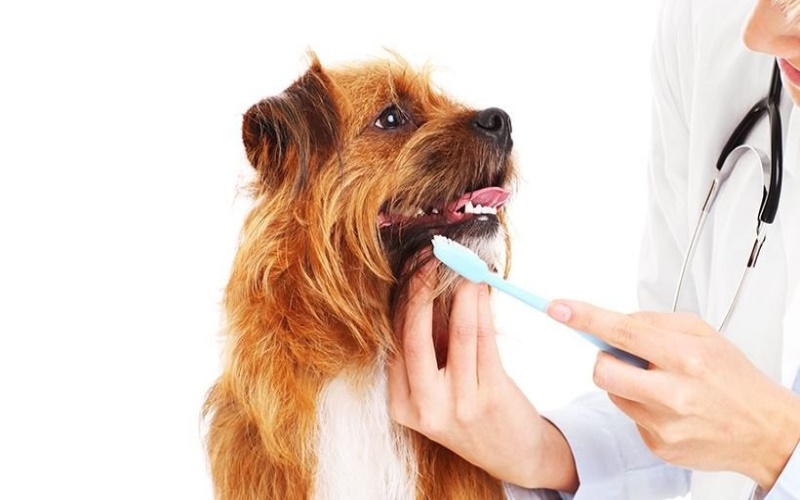Maintaining good dental health is essential for the overall well-being of dogs. Just like humans, dogs can suffer from a range of dental problems that, if left untreated, can lead to serious health issues. This guide covers the importance of dental health, common dental problems in dogs, and how to maintain your dog’s oral hygiene.
The Importance of Dental Health
Dental health is crucial for several reasons:
- Overall Health: Poor dental health can lead to infections that may spread to other parts of the body, including the heart, liver, and kidneys.
- Comfort and Quality of Life: Dental issues can cause significant pain and discomfort, affecting a dog’s ability to eat and enjoy life.
- Longevity: Dogs with good oral health tend to live longer, healthier lives.
Common Dental Problems in Dogs
- Periodontal Disease: This is the most common dental problem in dogs, affecting up to 80% of dogs over the age of three. It starts with plaque buildup, leading to gum inflammation (gingivitis), and can progress to affect the bones and tissues supporting the teeth.
- Tooth Fractures: Dogs can fracture their teeth by chewing on hard objects. This can lead to pain, infection, and tooth loss.
- Tooth Abscesses: An abscess is a pocket of pus caused by a bacterial infection. Abscesses can form at the root of a tooth, causing swelling and pain.
- Oral Tumors: While less common, dogs can develop tumors in their mouths, which may be benign or malignant.
- Malocclusion: This refers to misalignment of the teeth, which can cause difficulty in chewing and may lead to other dental issues.
Signs of Dental Problems
Dogs are often adept at hiding pain, but there are signs you can look for:
- Bad breath (halitosis)
- Red or swollen gums
- Yellow or brown tartar on the teeth
- Drooling or dropping food from the mouth
- Pawing at the mouth or face
- Reluctance to eat or chew
- Bleeding from the mouth
Preventing Dental Problems
Preventive care is key to maintaining your dog’s dental health. Here are some steps to follow:
- Regular Brushing: Brush your dog’s teeth daily with a toothbrush and toothpaste designed for dogs. Human toothpaste can be harmful to dogs.
- Dental Chews and Toys: Provide your dog with dental chews, dental sticks for dogs, and toys that help reduce plaque and tartar buildup.
- Healthy Diet: Feed your dog a balanced diet that promotes dental health. Some dog foods are specifically formulated to reduce tartar and plaque.
- Regular Vet Checkups: Regular veterinary checkups should include a dental examination. Professional cleanings may be necessary to remove tartar and plaque that brushing can’t reach.
- Water Additives: There are water additives available that can help reduce bacteria in your dog’s mouth.
Professional Dental Care
Veterinarians can perform professional cleanings and other dental procedures under anesthesia. This allows for a thorough cleaning and examination of your dog’s teeth and gums, as well as the treatment of any problems that might be found. Procedures can include:
- Scaling and polishing to remove tartar and plaque
- X-rays to assess the health of the teeth and jawbone
- Extractions of damaged or infected teeth
Conclusion
Maintaining your dog’s dental health is a vital part of ensuring their overall well-being and longevity. By practicing regular oral hygiene, providing appropriate dental chews and toys, such as dental sticks for dogs, feeding a healthy diet, and ensuring regular veterinary checkups, you can help prevent dental problems and keep your dog healthy and happy. Always consult your veterinarian for advice tailored to your dog’s specific needs.

